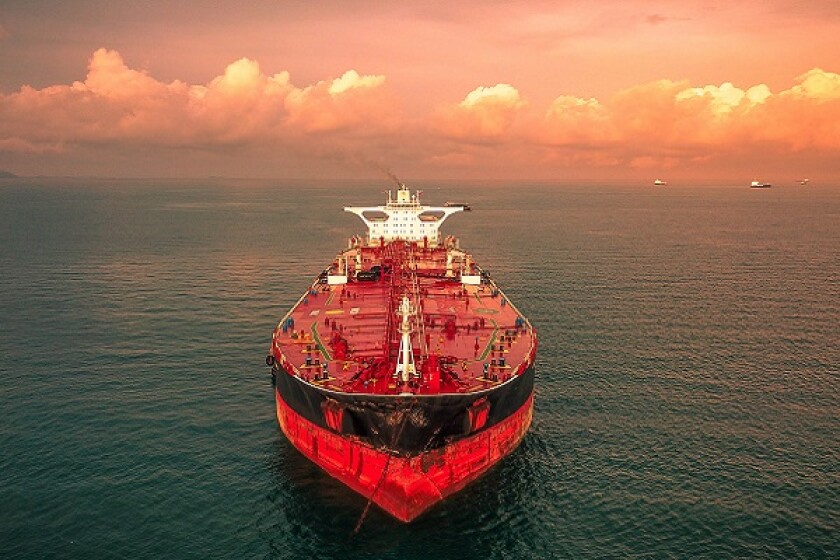The shipping industry has for many years proved to be one of the most successful sectors of the Cyprus economy. It is the longest serving generator of foreign direct investment and contributes approximately 7% of GDP. An important element of this success is the Cyprus merchant fleet, which is the third largest in Europe and the 11th largest in the world.
Among the various factors that have rendered the Cyprus flag attractive to ship owners, a key pull has been the existence of a specialised shipping taxation system based on the tonnage of a vessel (the tonnage tax). The advantage of such a system is that the tax burden in relation to the vessel is known, and does not fluctuate with profit or income levels. The Cyprus tonnage system is detailed in the EU approved Cyprus Tonnage Tax System Law 44(I)/2010 (the tonnage law).
In 2020, in a move to reduce the adverse impact of the shipping industry on the environment, the Cyprus government amended the tonnage law. The purpose of the amendment was to provide qualifying ship owners with an incentive to reduce the adverse environmental impact of their vessels. This incentive took the form of a potential reduction of up to 30% of the tonnage tax imposed. This would apply where owners could demonstrate that their vessels used equipment and/or mechanisms that contributed to the environmental preservation of marine life or worked towards reducing the effects of climate change.
On January 29 2021, the Tonnage Tax (Environmental Incentives) Order of 2021 (the order) was published in the Official Gazette of the Republic. The order details the eligibility criteria for obtaining a reduction in tonnage tax and for the level of reduction that will be applied. These are summarised below.
Qualifying vessels
To be eligible to apply for any aspect of the incentive scheme, a ship must be:
A Cyprus or European Community ship that is within the tonnage scheme and is engaged in maritime transport; and
Not ‘laid up’ during the calendar year during which the owner applies for an environmental incentive.
Excluded from the scheme are:
Ships which, in a calendar year when the owner has applied for an environmental incentive, have:
Been detained for any environmental deficiency during a port state control inspection; or,
Have violated any EU legislation in force related to environmental protection.
No incentive will be granted to the ship owner in that calendar year.
Available incentives
There are three types of incentives detailed within the order. These are summarised below.
Energy Efficiency Design Index (EEDI)
This is mainly relevant to ships subject to provisions of Regulations 19-21 of the amended MARPOL Convention/Annex VI (MARPOL).
Ships that can demonstrate a further reduction of the attained EEDI, relative to the required EEDI, can secure an annual tonnage tax reduction for their owner as follows:
A greater than 10% reduction relative to required level will result in a 5% reduction in annual tonnage tax;
A greater than 15% reduction relative to required level will result in a 10% reduction in annual tonnage tax;
A greater than 20% reduction relative to required level will result in a 20% reduction in annual tonnage tax; and
A greater than 30% reduction relative to required level will result in a 25% reduction in annual tonnage tax.
For phase two of the scheme, an additional 10% tonnage tax reduction will be applied to the corresponding percentage of the table. For phase three, an additional 30% reduction will apply to the initial reduction percentage. Thus, if a 10% reduction is obtained in phase one, this will rise to 11% in phase two and, to 13% in phase three.
It should be noted that ships falling outside of the MARPOL convention that demonstrate voluntary compliance with phases one, two or three, may secure their owner an annual tonnage tax reduction as follows:
5% when compliant with phase one;
15% when compliant with phase two;
30% when compliant with phase three.
IMO Data Collection System (DCS)
This is relevant for ships of 5,000GT and above spending a minimum of 4,380 hours at sea per annum and, subject to regulation 22A of MARPOL.
Ships that can demonstrate a reduction of total fuel consumption per distance travelled between two consecutive reporting periods, render their owner eligible for the following annual tonnage tax reductions.
2-4% fall in fuel usage will lead to a 10% reduction in tax;
4-6% fall in fuel usage will lead to a 15% reduction in tax; and
A fall great than 6% in fuel usage will lead to a 20% reduction in tax.
Consumption of alternative fuels
This is applicable for ships of 5,000GT and above.
Ships powered by alternative fuels can obtain an annual tonnage tax reduction for their owner as follows:
15% reduction for using biofuels, methanol, electricity or other fuel types that achieve a reduction in carbon dioxide emissions of at least 20% relative to comparative ships using fossil fuels; and
30% reduction for using biofuels, methanol, electricity or other fuel types that achieve a reduction in carbon dioxide emissions of at least 30% relative to comparative ships using fossil fuels.
Other considerations
To be approved for any of the incentives, applicants must submit the relevant supporting documents specified in the order as an attachment to their application.
It should also be noted that the maximum annual tonnage tax reduction granted to an owner will never exceed 30%.
Wider impact
The positive outcomes of the legislative change are not restricted to the direct environmental improvements they may induce. The introduction of the amendment to the tonnage law was an important factor in the EU agreeing to extend its approval of the tonnage system for a further 10 years.
In 2020, Cyprus also consolidated its position on the Paris and Tokyo Memorandum of Understanding on port state control (MoU) ‘white lists’, and joined the US Coast Guard’s Qualship 21 list. When combined, these votes of confidence for Cyprus’ tax system, its safety standards and, its port state control performance should ensure the sustainability of the shipping sector for the next decade.
Finally, the order may also help boost the country’s growing number of dedicated marine institutes, which are focused on promoting research, technology and innovation in the shipping sector and, on influencing international policy towards a greener, smarter and safer shipping industry.
Costas Stamatiou
Partner, Elias Neocleous & Co
Vassilis Psyrras
Senior associate, Elias Neocleous & Co



